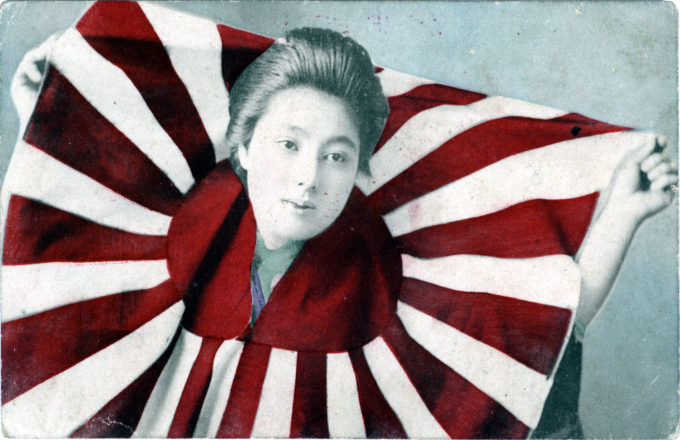See also:
“Japanese troops passing Czech headquarters in inter-Allied parade”, Vladivostok, Russia, c. 1920.
“The Siberian Intervention [1918-1922] was perceived by many Japanese to be the acid test of whether it might be possible to accommodate themselves to the trends of the times brought forth by the new world situation. Naturally this had both a foreign and a domestic component.
“Having risen to the ranks of the ‘big five’ at Versailles in 1919 and then the ‘big three’ at the Washington Conference in 1921-1922 Japan had appeared to secure itself a place among the rekkoku or Great Powers. In consequence of this many in Japan suggested that Japanese activities on the Asian mainland, while continuing to secure Japan’s ‘paramount interests’ in Manchuria, should shift focus so as to avoid confrontation with Britain and the United States. Yet many in Japan, whose conception of the modern state was based on the now discredited Imperial German model, remained wedded to the old idea of empire acquired through conquest … The course of the Siberian Intervention and the often contradictory actions taken by the Japanese regarding it are reflective of this schism, which played out within the government primarily as a tug of war between the civilian, party cabinet of Hara Takashi (Kei) and the army general staff under Uehara Yusaku.
“Domestically, the intervention was equally important in demonstrating whether or not a ‘democratic’ government could be trusted to act in accordance with popular will … The rise of a ‘responsible’ government fostered hopes among many in Japan that a new deference would be paid to popular opinion in foreign affairs. Yet the Hara cabinet was unable to impose its will on the army general staff. Even after American withdrawal from Siberia in April 1920 the army insisted on a continued Japanese presence despite widespread calls for complete withdrawal.
“Although Hara was able to whittle down the intervention, and get the army to agree to a withdrawal in principle in May 1921, a rump intervention continued until October 1922.
“… In short, the experience of Japan’s Siberian Intervention was critical to undermining the initial enthusiasm for democracy at the end of the First World War. The impotence of democratic government to carry out the popular will and the inability of Japanese civil society to compel meaningful change disheartened democratic advocates … Even worse, the unilateral actions of the army were seen as severely damaging to Japan’s international position and prestige, proving Japan to be a ‘militarist’ nation which could not be trusted to behave responsibly in the new international environment.”
– Japan’s Siberian Intervention, 1918–1922, by Paul E. Dunscomb, 2011


